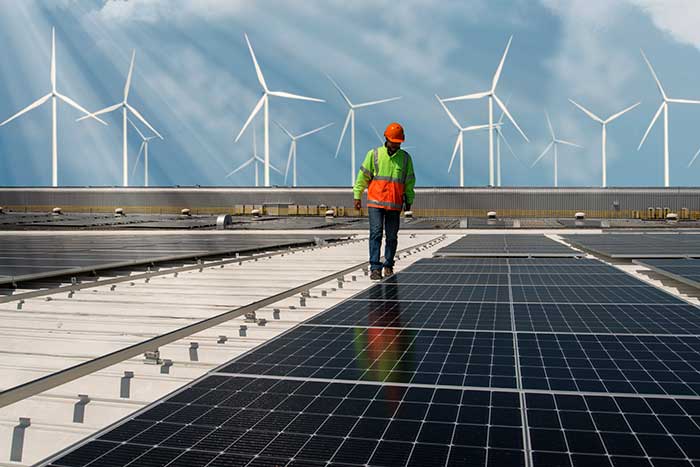Educating Environmental Professionals in the Era of Sustainability
We are facing an era of rapid societal changes and environmental sustainability challenges that must be solved for society, businesses, and governments to move forward. Today’s environmental professionals must use their education and skills to meet the new demands for sustainability in all aspects of their work, while protecting the economic and social goals of their employers.
Meeting these goals in a constantly changing environment is a tall order for any professional and requires the ability to grow, learn, and adapt while leading a team of professionals in other disciplines. Every part of the team must work together to achieve the goals of environmental sustainability.

What does Sustainability Mean?
Sustainability is the ability to “meet the needs of the present without compromising the ability of future generations to meet their own needs,” according to the United Nations World Commission on Environment and Development. It requires that we look after our environment and resources for future generations, a goal that can be in direct competition with profit margins and corporate goals. It means that environmental professionals must have the knowledge, skill, and experience to put together solutions that preserve resources for the future and be able to lead an interdisciplinary team to accomplish this goal.
Requirements of Educational Professionals in this Era of Sustainability
To succeed in this Era of Sustainability, educational professionals must be agents of change. Students at all levels need the knowledge, skills, and tools to succeed in an ecologically healthy business model. The fundamentals of sustainability should be woven into our teaching at all levels of curriculum to encourage a change in thinking and lead us to a healthier, more sustainable future. Educators must teach the importance of reducing our footprint on the environment and lead students in collaboration in science, engineering, technology, and innovation to create sustainable solutions for the future.
Why Employers Want Employees with Capabilities in Sustainability
Society is demanding that our corporations be more environmentally conscious and set goals toward sustainability. Environmental sustainability is good for the company, its investors, and its future. Likewise, employees prefer to work for companies that value our natural resources and work toward sustainability.
One way that companies can make progress toward sustainability is to hire employees with knowledge and skills in sustainability. In many cases, certified environmental professionals and sustainability goals are required to win the project bid. Companies with environmental professionals who have these skills are in demand. Many companies offer incentives to employees to gain these skills, such as:
- Opportunities for career advancement, including promotions and pay increases
- Recognition of environmental knowledge and experience
- Increased confidence in skill levels and increasing responsibilities within the team
One way to validate your knowledge and skills as an environmental professional is to pursue a professional certification. These certifications show that you are learning and progressing in your profession and that you are a recognized professional in the field.

What Certifications does NREPSM Offer on Sustainability?
While all environmental certifications touch on the area of sustainability, some are more focused than others. NREPSM certifications geared toward an environmental career in sustainability include:
- Associate Environmental Professional (AEP)
- Certified Environmental Scientist (CES)
- Certified Environmental and Safety Compliance Officer® (CESCO)
- Certified Environmental Storm Water Compliance Professional (CESCP)
- Certified Environmental Systems Manager (CESM)
- Certified Natural Resources Professional (CNRP)
- Certified Waste Management Professional (CWMP)
- Registered Environmental Manager (REM®)
- Registered Environmental Professional® (REP)
All of these certifications offer a career boost and are a good step toward a career in environmental sustainability. Some are entry level for professionals just starting their careers, while others require advanced knowledge, skills, and experience. Learn more about first-time certifications from the National Registry of Environmental Professionals® ®.
